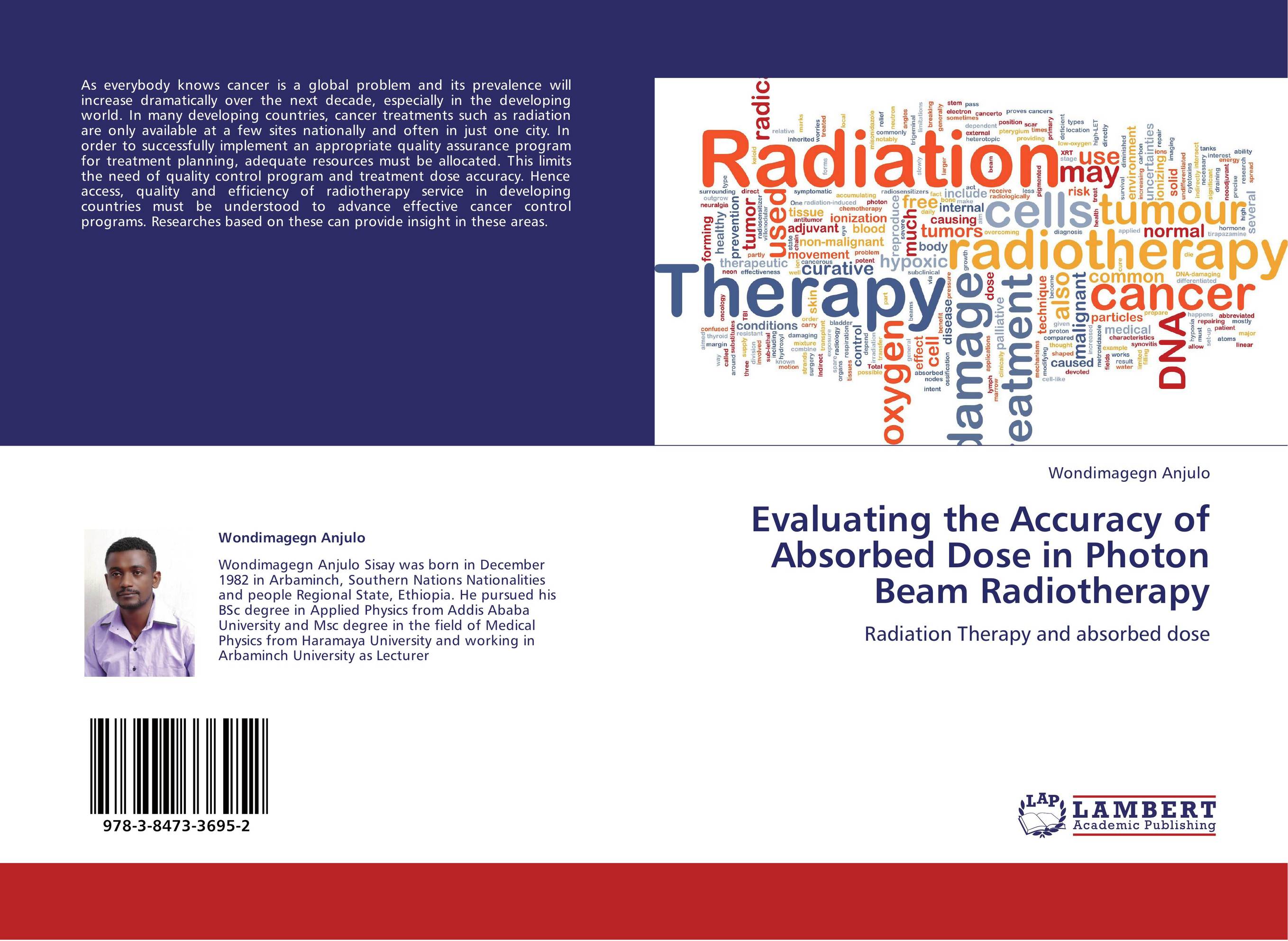| Поиск по каталогу |
|
(строгое соответствие)
|
- Профессиональная
- Научно-популярная
- Художественная
- Публицистика
- Детская
- Искусство
- Хобби, семья, дом
- Спорт
- Путеводители
- Блокноты, тетради, открытки
Evaluating the Accuracy of Absorbed Dose in Photon Beam Radiotherapy. Radiation Therapy and absorbed dose

В наличии
| Местонахождение: Алматы | Состояние экземпляра: новый |

Бумажная
версия
версия
Автор: Wondimagegn Anjulo
ISBN: 9783847336952
Год издания: 2013
Формат книги: 60×90/16 (145×215 мм)
Количество страниц: 84
Издательство: LAP LAMBERT Academic Publishing
Цена: 28465 тг
Положить в корзину
| Способы доставки в город Алматы * комплектация (срок до отгрузки) не более 2 рабочих дней |
| Самовывоз из города Алматы (пункты самовывоза партнёра CDEK) |
| Курьерская доставка CDEK из города Москва |
| Доставка Почтой России из города Москва |
Аннотация: As everybody knows cancer is a global problem and its prevalence will increase dramatically over the next decade, especially in the developing world. In many developing countries, cancer treatments such as radiation are only available at a few sites nationally and often in just one city. In order to successfully implement an appropriate quality assurance program for treatment planning, adequate resources must be allocated. This limits the need of quality control program and treatment dose accuracy. Hence access, quality and efficiency of radiotherapy service in developing countries must be understood to advance effective cancer control programs. Researches based on these can provide insight in these areas.
Ключевые слова: As everybody knows cancer is a global problem and its prevalence will increase dramatically over the next decade, especially in the developing world. In many developing countries, cancer treatments such as radiation are only available at a few sites nationally and often in just one city. Ethiopia has only one radiotherapy center and one radiotherapy machine to serve a population of about 80million. In order to successfully impleme, adequate resources must be allocated. This limits the need of quality control program and treatment dose accuracy. Hence access, quality and efficiency of radiotherapy service in developing countries must be understood to advance effective cancer control programs. Researches based on these can provide insight in these areas.



